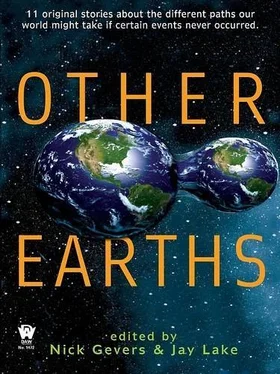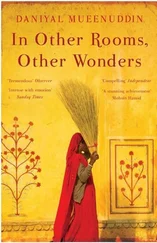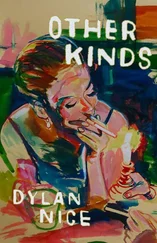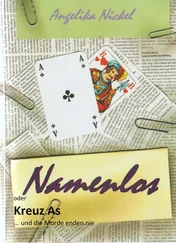Nick Gevers - Other Earths
Здесь есть возможность читать онлайн «Nick Gevers - Other Earths» весь текст электронной книги совершенно бесплатно (целиком полную версию без сокращений). В некоторых случаях можно слушать аудио, скачать через торрент в формате fb2 и присутствует краткое содержание. Жанр: Фантастика и фэнтези, на английском языке. Описание произведения, (предисловие) а так же отзывы посетителей доступны на портале библиотеки ЛибКат.
- Название:Other Earths
- Автор:
- Жанр:
- Год:неизвестен
- ISBN:нет данных
- Рейтинг книги:3 / 5. Голосов: 1
-
Избранное:Добавить в избранное
- Отзывы:
-
Ваша оценка:
- 60
- 1
- 2
- 3
- 4
- 5
Other Earths: краткое содержание, описание и аннотация
Предлагаем к чтению аннотацию, описание, краткое содержание или предисловие (зависит от того, что написал сам автор книги «Other Earths»). Если вы не нашли необходимую информацию о книге — напишите в комментариях, мы постараемся отыскать её.
Other Earths — читать онлайн бесплатно полную книгу (весь текст) целиком
Ниже представлен текст книги, разбитый по страницам. Система сохранения места последней прочитанной страницы, позволяет с удобством читать онлайн бесплатно книгу «Other Earths», без необходимости каждый раз заново искать на чём Вы остановились. Поставьте закладку, и сможете в любой момент перейти на страницу, на которой закончили чтение.
Интервал:
Закладка:
Of my many failings, the most galling was that I had wasted my gifts on genre fiction. I could have achieved much more, I believed, had I not gone for the easy money but, like Cradle Two, had been faithful to my muse. Typically, I didn’t count myself to blame but assigned blame to the editors and agents who had counseled me, to the marketers and bean counters who had delimited me, and to the people with whom I had surrounded myself—wives and girl-friends, my fans, my friends. They had dragged me down to their level, seduced me into becoming a populist. I saw them in my mind’s eye overflowing the chambers of my life, the many rooms of my mansion, all the rooms in fantasy and science fiction, all the crowded, half-imaginary party rooms clotted with people who didn’t know how to party, who failed miserably at it and frowned at those few who could and did, and yearned with their whole hearts to lose control, yet lacked the necessary passionate disposition; all the corridors of convention hotels packed with damaged, overstuffed women, their breasts cantilevered and contoured into shelf-like projections upon which you could rest your beer glass, women who chirped about Wicca, the Tarot, and the Goddess and took the part of concubine or altar-slut in their online role-playing games; all the semibeautiful, equally damaged, semi-professional women who believed they themselves were goddesses and concealed dangerous vibrators powered by rats’ brains in their purses and believed that heaven could be ascended to from the tenth floor of the Hyatt Regency in Boston, yet rejected permanent residence there as being unrealistic; all the mad, portly men with their bald heads and beards and their eyeballs in their trouser pockets, whose wives caught cancer from living with them; all the dull hustlers who blogged ceaselessly and had MacGyvered a career out of two ounces of talent, a jackknife, and a predilection for wearing funny hats, and humped the legs of their idols, who blogged ceaselessly and wore the latest fashion in emperor’s new clothes and talked about Art as if he were a personal friend they had met through networking, networking, networking, building a fan base one reader at a time; all the lesser fantasists with their fantasies of one day becoming a famous corpse like Andre Breton and whose latest publications came to us courtesy of Squalling Hammertoe Woo Hoo Press and who squeezed out pretentious drivel from the jerk-off rags wadded into their skulls that one or two Internet critics had declared works of genius, remarking on their verisimilitude, saying how much they smelled like stale ejaculate, so raw and potent, the stuff of life itself; all the ultrasuccessful commercial novelists (I numbered myself among them) whose arrogance cast shadows more substantial than anything they had written and could afford, literally, to treat people like dirt; all the great men and women of the field (certain of them, anyway), the lifetime achievers who, in effect, pursed their lips as if about to say “Percy” or “piquant” when in public, fostering the impression that they squeezed their asscheeks together extra hard to produce work of such unsurpassed grandiloquence …Many of these people were my friends and, as a group, when judged against the entirety of the human mob, were no pettier, no more disagreeable or daft or reprehensible. We all have such thoughts; we find solace in diminishing those close to us, though usually not with so much relish. And while I kept on vilifying them, spewing my venom, I recognized they were not to blame for my deficiencies and that I was the worst of them all. I had all their faults, their neuroses, their foibles, and then some—I knew myself to be a borderline personality with sociopathic tendencies, subject to emotional and moral disconnects, yet lacking the conviction of a true sociopath. The longer I contemplated the notion, the more persuaded I was to embrace the opinion espoused in The Tea Forest that Thomas Cradles everywhere were men of debased character. The peculiar thing was, I no longer took this judgment for an insult.
Our fifth day on the river, Lucy scored a fresh supply of opium from a floating market, and that night, a dead-still night, hot and humid as the inside of an animal’s throat, once she had prepared a pipe, she held it out to me and said, “I believe the time is right.”
“No, thanks,” I said.
She continued to offer the pipe, her clever face ordered by a bemused expression, like a mother forcing her infant son to try a new food, one she knows he will enjoy.
“I’ve smoked pot,” I said. “But I don’t know about this.”
“I promise you, you’ll have a grand old time. And it’ll help with the heat.”
I took the pipe. “What do I do?”
“When I light the pipe, draw gently on it. You mustn’t inhale deeply, just enough to guide the smoke.”
It was as she said. Once guided, the smoke seemed to find its own way, plating my throat and lungs with coolness and enforcing a dizzy, drifty feeling. I lost track of what Lucy was doing, but I think she, too, smoked. We lay facing one another, and I became fascinated by the skin on her lower abdomen, pale and, due to shaving, more coarsely grained than the rest. My limbs were heavy, but I managed to extend a forefinger and touch her. The contact was so profound, I had to close my eyes in order to absorb the sensations of warmth and softness and muscularity. With effort, because I had little strength and not much volition, I succeeded in slitting my eyes, focusing on an inch of skin higher up, a tanned, curving place. My focus narrowed until I appeared to be looking at a minute fraction of her whole, a single tanned atom, and then I penetrated that atom and was immersed in a dream, something to do with a lady swimming in a pool floored by a huge white lotus, its petals lifted by gentle currents, and an anthropomorphic beast with the head of a mastiff who ate cockroaches, pinching off their heads, draining them of a minim of syrupy fluid that he chased with diamonds, grabbing a handful from a bowl at his elbow and crunching them like peanuts, a fabulous adventure that was interrupted, cut off as if the channel had been switched, and replaced by the image of a night sky into which I was ascending.
The lights in the sky appeared scattered at first but grew brighter and increasingly unified, proving to be the visible effulgence of a single creature. It was golden-white in color and many chambered, reminding me of those spectacular, luminous phantoms that range the Mindanao Trench, frail complexities surviving at depths that would crush a man in an instant; yet it was so vast, I could not have described its shape, only that it was huge and golden-white and many chambered. Its movements were slow and oceanic, a segment of the creature lifting, as though upon a tide, and then an adjacent segment lifting as the first fell, creating a rippling effect that spread across its length and breadth. All around me, black splinters were rising toward the thing, sinister forms marked by a crookedness, like hooked thorns. Dark patches formed on its surface, composed of thousands of these splinters, and it began to shrink, its chambers collapsing one into the other like the folds of an accordion being compressed. Unnerved, I tried to slow my ascent, and as I twisted and turned, flinging myself about, I glimpsed what lay behind me: a black, depthless void picked out by a single, irregular gray shape, roughly circular and, from my perspective, about the size of a throw rug. The gray thing made me nervous. I looked away, but that did nothing to ease my anxiety, and for the duration of my dream—hours, it seemed—I continued my ascent, desperate to stop, my mind clenched with fear. When I woke near first light, my heart hammered and I was covered in sweat. I recalled the mural in Stung Treng, noting the crude resemblance it bore to the glowing creature, but a more pressing matter was foremost in my thoughts.
Читать дальшеИнтервал:
Закладка:
Похожие книги на «Other Earths»
Представляем Вашему вниманию похожие книги на «Other Earths» списком для выбора. Мы отобрали схожую по названию и смыслу литературу в надежде предоставить читателям больше вариантов отыскать новые, интересные, ещё непрочитанные произведения.
Обсуждение, отзывы о книге «Other Earths» и просто собственные мнения читателей. Оставьте ваши комментарии, напишите, что Вы думаете о произведении, его смысле или главных героях. Укажите что конкретно понравилось, а что нет, и почему Вы так считаете.












